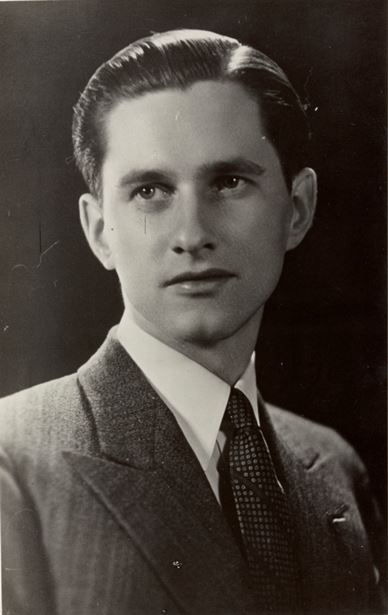


ChessBase 17 - Mega package - Edition 2024
It is the program of choice for anyone who loves the game and wants to know more about it. Start your personal success story with ChessBase and enjoy the game even more.
Keres himself, however, did not seem to attach too much importance to this perfect score. In his book with a selection of his best games he writes with typical sober restraint: "My chess activity [in 1942] began with my participation in the Estonian Championship in Tallinn ... where I managed to win all 15 games." But he onsidered none of his 15 wins good enough to include it into his book.
He was also generally critical of his play in 1942: "It was obvious that the difficult war years had had a very unfavourable effect on my play. The games I played lacked freshness and inventiveness, and there were several gross inaccuracies in the technical part of the game."

Paul Keres 1943 | Photo: ESM F 203:463/B 1834, Estonian Sports Museum, Quelle: Joosep Grents, Paul Keres IV: The War Years
Perhaps Keres had top tournaments with strong opponents in mind when he made this rather self-critical evaluation of his play, but in the 1942 Estonian Championship Keres played confidently and won his games almost at will. He crushed his opponents with calm or violent attacking play, he outplayed them positionally or defeated them in the endgame. Keres' play in Tallinn in 1942 is straightforward and strong and provides a whole series of good examples of how a top player defeats weaker opponents without risk.
Here is an example of a textbook attack:
And here's an example how Keres wins an equal ending:
This game could easily have ended in a draw, but in only one of his 15 games Keres was in serious trouble. After playing the opening carelessly he was a clear pawn down against Feliks Kibbermann. Keres had no adequate compensation for the pawn, but then Kibbermann collapsed and blundered the game away.
The game against Kibbermann was played in Round 9, and after that everything went smoothly again and Keres won the tournament with 15 points from 15 games. Of course, the sporting value of this 100% score is not as high as winning a top tournament as Keres' opponents in Tallinn were not particularly strong, but scoring 15 points from 15 games is and remains a remarkable result.